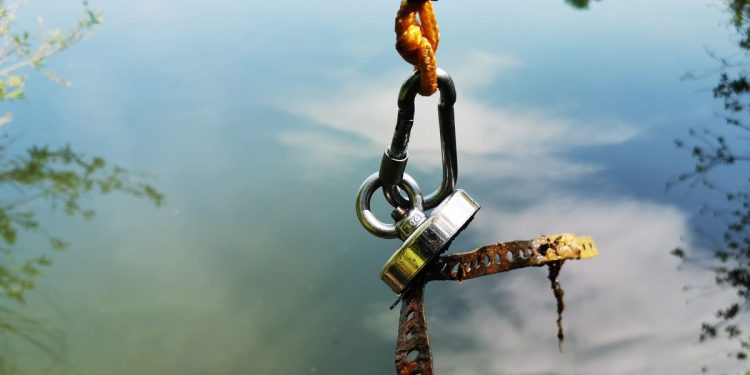Magnet fishing, the exciting pastime of searching underwater with powerful magnets for lost treasures, has become increasingly popular in recent years. However, for those looking to try their luck in South Carolina’s waterways, there’s a crucial question to answer first: is magnet fishing illegal?
The answer, unfortunately for magnet fishing enthusiasts, is yes. Unlike many other states, South Carolina has a specific law that prohibits this activity. This article will delve into the legalities of magnet fishing in South Carolina, explore the reasons behind the ban, and offer some alternative activities for those seeking underwater exploration in the Palmetto State.
Is Magnet Fishing Illegal in South Carolina?
yes, magnet fishing is illegal in South Carolina under the South Carolina Underwater Antiquities Act of 1991. The state is the only one in the US with specific laws prohibiting the practice of magnet fishing in public waters
The South Carolina Underwater Antiquities Act
The legislation responsible for making magnet fishing illegal is the South Carolina Underwater Antiquities Act. This act, established to protect the state’s underwater archaeological heritage, prohibits the indiscriminate collection of artifacts using tools deployed from the water’s surface. This includes equipment like tethered rakes, scoops, and, you guessed it, magnets.
The South Carolina Institute of Archeology and Anthropology (SCIAA) enforces the Underwater Antiquities Act. Their position on magnet fishing is clear: they consider it a destructive practice that could potentially disturb and damage historically significant underwater sites.
The indiscriminate nature of magnet fishing is a key concern. Unlike controlled archaeological digs, magnet fishing involves pulling up anything the magnet catches. This could include valuable historical artifacts alongside scrap metal and other debris.
The SCIAA argues that magnet fishing disrupts the context in which artifacts are found, making it difficult for archaeologists to understand their history and significance. Additionally, the powerful magnets used can damage fragile artifacts, further hindering historical research.
Understanding the Reasons Behind the Ban
While the allure of finding hidden treasures might be strong, understanding the rationale behind the ban is important. Here’s a closer look at the SCIAA’s concerns:
- Protection of Underwater Cultural Heritage: South Carolina boasts a rich history that extends underwater. Shipwrecks, Native American settlements, and other submerged archaeological sites hold valuable information about the state’s past. Magnet fishing poses a threat to these sites by potentially disturbing or damaging artifacts before they can be properly studied and preserved.
- Safety Concerns: Powerful magnets used for magnet fishing can be dangerous. They can snag on underwater structures, entangle unsuspecting wildlife, or even attract weapons or explosives. Additionally, strong magnets can injure people who come into contact with them.
- Environmental Impact: Magnet fishing can inadvertently pull up and disturb aquatic life alongside the target metal objects. This can disrupt delicate ecosystems and harm marine creatures.
What Happens if You’re Caught Magnet Fishing in South Carolina?
The specific penalties for violating the South Carolina Underwater Antiquities Act vary depending on the severity of the offense. It’s considered a misdemeanor and could result in fines, community service, or even jail time. Additionally, confiscated magnets and any recovered artifacts would be turned over to the SCIAA for proper examination and preservation.










